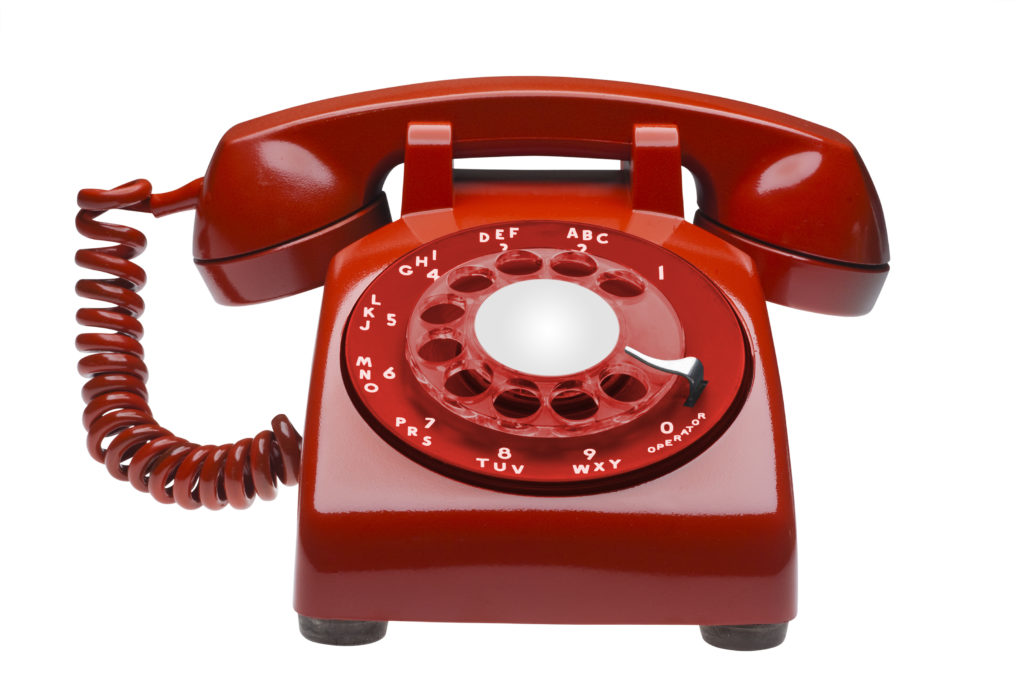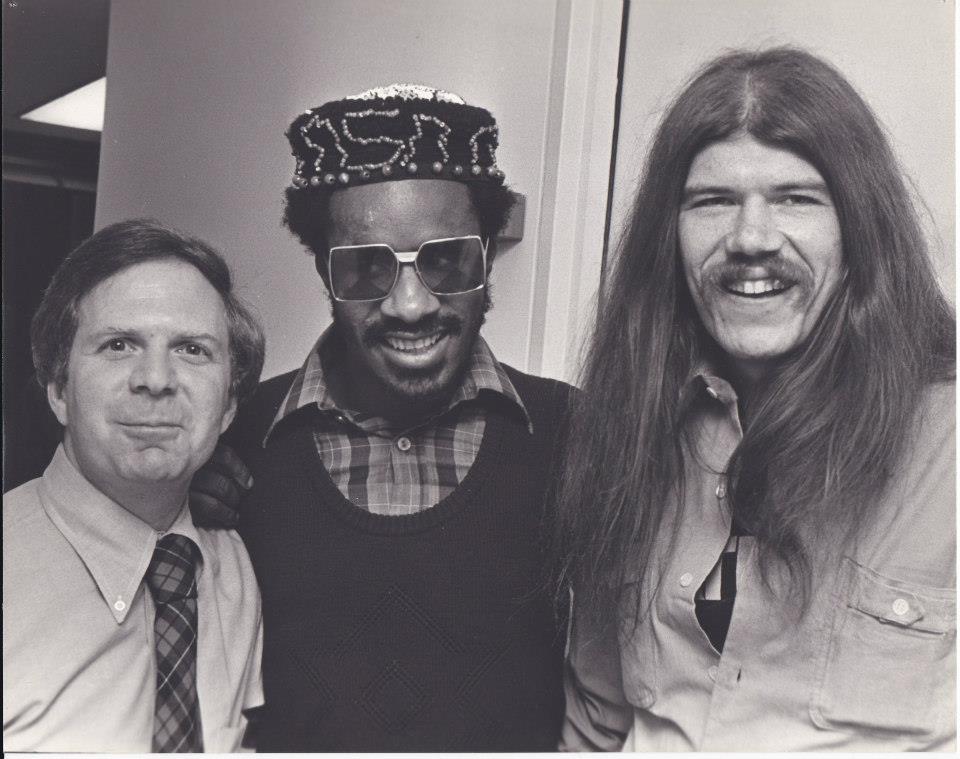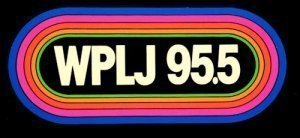
You’ve seen the web memes, photos, and videos that show all the devices, gadgets, and services that have gone by the wayside since smartphones have become ubiquitous in our lives. The compass, calculator, flashlight, camera, Rolodex, notepad, and so many other handy items have all but been replaced by the iPhone and similar handsets that have become as important to us as our wallets.
If you’re in radio, just don’t add the “hot line” to that list.
You’d think that as a PD in the digital era, all you’d need to get the attention of a DJ, host, or show on the air to efficiently and effectively send them a text message. But the red phone in the studio – the hotline, the Batphone – that silently sets off a blinking light the person on the air couldn’t possibly miss is still an effective way of trying to avoid a disaster – or quickly finding out if one just occurred.
Unlike the splicing block, the cart machine, and the pager, the hot line is still a go-to communications tool of choice at many radio stations, although a simple text to the jock on the air is becoming a more prevalent way to quickly connect. And that got me thinking about a blog post I’ve had on the shelf for more than a year:
Weird hotline stories.
Many stations have two direct outside phone lines into the studio – a “warm line” – a number for general communications, but nothing urgent. And then, the hotline, originally named after the red phone that was set up between the U.S. and the Soviet Union in June of 1963, back in the “Cold War” days, designed to head off a nuclear war because of a mistake, misunderstanding, or a politician run amok.
In radio parlance, the hotline serves essentially the same purpose, giving a PD the direct line into the studio – and the jock on the air’s attention. PDs still call in with questions like these:
“What was that?”
“Did you forget about the giveaway?”
“Do you know your mic’s still open?”
“What format are you running?”
“Holy s*&%!”
The blog post I planned was to collect funny, relatable hotline stories for a whimsical post. I reached out to a couple of old PD friends, but just didn’t feel I had enough good stories to put it together.
Until last week. And that’s when the announcement leaked out on Facebook that Larry Berger had passed away.
Unless you worked in New York Radio or spent some time at ABC Radio, chances are you never got to meet Larry. He was not the most outgoing of PDs, and although the term networking had not been invented when Larry did his best programming in the 70s and 80s, he was not especially interested in getting his name “out there.” There were more dynamic, outspoken programmers back in the 70s and 80s. Larry chose to fly under the radar.

Larry Berger is best known for programming ABC Radio’s FM flagship in New York City – WPLJ. It was a juggernaut of a station in the market for years and years. And while WNEW-FM was massively cooler, more influential, and very iconic to music heads, PLJ knocked it out of the park in the Arbitron ratings and subsequent sales for years and years.
That was when Larry was at the helm. Before PLJ, Larry spent time programming WRIF here in Detroit before turning over the controls to Tom Bender. And that’s how I met him. While Tom was a mentor, Larry was something of a patriarch. Early on, he was the most famous, major market PD I knew who would take the time to have a thoughtful conversation with me about programming, music, and philosophy.
When Larry shocked the radio world and decided to take WPLJ to Power 95 – a CHR format – in the early 80s, I was heartbroken. I felt Larry had betrayed “Album Rock” – the format, the culture, and the audience. But Larry saw a future dominated by pop – Michael Jackson, Madonna, and other bigger than life mainstream acts – and he rolled a huge pair of dice to change formats at a time when PLJ was still performing well as a rock station.
Larry wasn’t about the music, a group of artists, or even thousands of fans. He was about coolly and pragmatically assessing the best pathway for PLJ to achieve continued profitability over the long haul. And he concluded it was the Top 40 route.
Larry and I weren’t exactly close friends anyway, and when he marched down this new path in 1983, I was in the throes of rolling out the Classic Rock format. We were officially moving in very different circles, and didn’t have a whole lot to talk about.
He transitioned PLJ to CHR, never looked back, and ended up in a battle royale with Scott Shannon and Z100. It was an amazing episode in “radio wars” in the nation’s biggest market. After many ABC execs moved on to different pastures after the company’s sale to Cap Cities, Larry left the market and programmed in the Bay Area.
Aptly described on his Facebook page as “a thinking man’s PD,” this photo and Larry’s caption says it all about his 24/7 mindset. Relaxed? Comfortable? Arrogant? Never.
Larry was a stickler for quality, and in those days, ABC Radio had the resources to deliver a great sounding product in the seven markets where they owned an FM station. (This was pre-consolidation so companies couldn’t even own more than one FM per market – and in only 7 U.S. metros.)
He was especially cognizant of the commercials that ran on PLJ, including the loud, obnoxious Crazy Eddie spots that were all over the station because of its great ratings. I wrote a post exactly one year ago about Larry’s quest to literally “blow up” these spots – something that has probably never been done since. You can read Larry’s saga here.
As Tom Bender recalls, “(Larry) was a master multitasker. I remember him running out of a meeting to check on his soybean futures, calling the station to solve some crisis, retiring to meditate, and then back to the meeting…all very focused.”
 A couple of years ago, we started up a conversation on Facebook Messenger. Larry would read some of my blogs, comment on them, and correct my memory, when necessary.
A couple of years ago, we started up a conversation on Facebook Messenger. Larry would read some of my blogs, comment on them, and correct my memory, when necessary.
And as it turned out, he was the guy behind one of the greatest hotline stories I’d ever heard. It involved setting up TWO hotlines, one Larry could use to offer a compliment or share some good news – and the other to ream out the on-air personality. The story was that corresponding illuminated photos of Larry hanging on the studio wall lit up depending on which line he called – one with him smiling and the other with him scowling. It was the perfect tool for an anal PD trying to make his station sound perfect. So, I reached out to him last year to set the story straight.
And here’s what he told me:
“When WPLJ’s studios went combo (the DJ running their own board) and moved from the 8th floor at 1330 (Avenue of the Americas) up to the 9th floor where our offices were, the engineers designed a totally new studio with a view facing west and a window!
The joke was to install TWO HOTLINES which would light up two display different images of my face in appropriate looks. This was never actually done, but it made a great story.”
He went on to give me his favorite hotline stories from those PLJ days:
“I didn’t use the hotline much, and it was often to just chat or compliment as often as it was to critique.
“Three stories: One time I was set to take a week-long vacation with my wife to the Caribbean. Plans were made and a memo was posted in the studio with emergency numbers, etc. But due to some problem with a visa to enter the Caribbean country (I think it was Haiti), we never boarded the plane and came home, disappointed, to our Manhattan apartment. I switch the radio on to WPLJ and there was Pat St. John, playing two versions of “Riders On The Storm” simultaneously and flange-phasing them like “The Big Hurt.” I had heard his younger brother Michael Stevens do this on WRIF and knew what was going on, so I hotlined Pat and probably took a year off his life since he thought I was in Haiti!”
“Another time, I hotlined Tony Pigg about something (don’t remember) and it just set him off enough so he literally ripped the phone off its mounting in the studio.
“Finally, my favorite hotline was at WRIF when the station was still in the trailers. The phone flashed a heat-lamp on the left side of the jock’s face, so it could not be ignored!”
Larry was intensely focused on his mission as a programmer, especially in those high-flying PLJ days. I was in Detroit when Howard Stern struck out on W4. Although he was still finding his voice, I liked Howard’s show a lot, and heard lots of potential. I was happy he was leaving Detroit so we no longer had to compete against him. Knowing Howard was born and raised in the New York City area, I wondered whether Larry might be interested in considering the unproven Stern for PLJ.

As Larry patiently explained to me, PLJ’s incumbent morning guy – Jim Kerr – was doing quite well, and he had no plans to even consider making a change. While Stern, of course, went on to great fame and fortune in New York Radio and beyond, Kerr was the consummate, beloved morning host for PLJ for years to come, and of course, on Q104.3 in the years since. Jim has had great success with Shelli Sonstein, who was also at PLJ back in the Berger days.
Fittingly, Jim Kerr will be honored by the National Radio Hall of Fame next month. So apparently, Larry knew he had a good plan in place.
To those of us blessed to work at ABC Radio during its FM rock radio heyday – Allen Shaw, Rick Sklar, Nick Trigony, Marc Morgan, Willard Lochridge, Larry Divney, Marty Greenberg, Joe Parrish, Lisa Tonacci, Gloria Johnson, Tom Yates, Tommy Hadges, Jim Smith, Corinne Baldassano, Roger Skolnik, Tom Bender, John Gehron, Alan Burns, not to mention the jocks like Carol Miller, Pat St. John, Jimmy Fink, Tony Pigg, Jim Kerr, Shelli Sonstein, and so many others – Larry’s passing is a true moment in time for all of us.
And every time I see a hotline go off or hear a hotline story, I think of Larry Berger’s grinning (or grimacing) face.
A couple of fun facts about WPLJ:
- The call letters were derived from the Mothers of Invention song “W-P-L-J” which stood for white port and lemon juice.
- Elton John’s famous live “11-17-70” album was recorded in front of a small audience at the WABC-FM studios (later WPLJ).
Apologies to any names I left off the ABC FM/WPLJ radio roster.
- What To Do If Your Radio Station Goes Through A Midlife Crisis - April 25, 2025
- A 2020 Lesson?It Could All Be Gone In A Flash - April 24, 2025
- How AI Can Give Radio Personalities More…PERSONALITY - April 23, 2025




Hey Fred one of my favorite Hot Line stories was many many years ago when I was doing middays and the hotline rang and it was our PD Bill Tanner and All he said was “I just called to tell you sound great “ and I was waiting for the Other shoe to drop and he said “that’s it …bye”
That really made my day… vs the hotline call I got years later from an unnamed PD who just yelled “be in my office Monday morning at 9am!!”
Joe Johnson Mia
Joe, as Larry Berger personalified, the hotline was a double-edged sword. There is value in letting the person know “I’m listening and you’re doing a great job.” Thanks for the stories.
Name them. They deserve to be named.
Never met Larry. I only knew him by his work which was first rate.
He understood his listener and designed the product accordingly. A simple formula with the difference being five star execution. This was insured because Larry was listening all the time and could follow-through. Yes he had a Hot Line. But it was only effective because he was always listening.
An inspirational tribute, Paul. Thank you.
Barry Drake
Appreciate your reading it, Barry, and the kind comments.
Larry’s mentor had many similar personality traits: Rick Sklar. And similar success! The name missing from the list is Willard Lochridge who was GM of WRIF and WPLJ. He hired Larry.
Willard was the ultimate Rock GM. He convinced Bo Diddly to perform at his high school’s dance.
Apprecite the reminders, and will add to the list. Thanks for “jogging” me.
Um…back when I knew it all & before smart phones. I had a PD who drove miles out of his way looking for a pay phone since I was breaking format for the 100th time. It’s 10:30 pm, he found 1 but didn’t have enough money. He stopped a cop and said he had to make an emergency phone call & was short some quarters. The cop had a roll of em. The hotline rings and before I say hello I hear “What the F are you doing and you owe me money”. He was 40 miles from work, drove another 7 to find a phone. The phone call cost $12.75.
Tim Slats
WNCX-Cleveland
I carried a pager back then, and can tell you awkward stories with a similar ring about trying to find a damn pay phone. Ah, for an iPhone in 1980. Thanks, Slats.
Larry was one of the smartest programmers I ever worked with. When I was programming sister station WLS AM/FM, Chicago, we had some great philosophical discussions. I am reminded of something he said about morning shows: “I don’t evaluate a morning show based on the show’s ratings. I evaluate it based on the show’s ability to raise the ratings of the OTHER dayparts.”
Given how disconnected some morning shows are from the rest of their station’s programming, those are still wise words in 2018.
Indeed. Great quote, Steve, and thanks for sharing the story. Great to hear from you.
Just a quick hotline story. In 1979 when I arrived at CK101 in Cocoa Beach. Mike Joseph had just left after developing what would become the Hot Hits format. I was told He use to sit in a hotel room, monitoring the jocks and told them if I ever hotline you 3 times during a show you’re fired. Sooo he made a point to hotline everyone twice!
Nothing like keeping everyone on their toes, Mike. Thanks for a great story that reads like radio from a very different time.
I think this counts as a “hotline story” …
I was working as Production Director/Chief Operator at a station in my hometown market of Ventura, California in the mid-1980s. I was between “real” jobs and my mother also needed help caring for my grandmother (who was near death) so I took the job, which included doing the midday airshift.
The owner was a Jewish man who I had worked for multiple times in the past, always on a handshake, always without misunderstandings. His son was the PD and did afternoon drive. Said son was late for his airshift by as much as ten minutes a couple of times a week.
One day, the owner interrupted his daily sales call routine to come to the studios and talk to his son before his airshift, having made the foolish presumption that said son would follow the professional tradition of arriving a half-hour in advance for same.
Came 3:00, no son, and I did my usual juggling act to cover without it being obvious he wasn’t there. But into the control room came father, and coming to an unfortunate realization (“Does he do this often?” “I plead the 5th Amendment”) went back to his office and upon coming back, handed me a 45 with the direction to “play this” … it was a novelty song titled “The Yiddish Rap”.
Now the son and I were often at loggerheads because he usually wanted to bend FCC rules and I would override him by citing from my little green binder that held the Rules update service we subscribed to. His father always sided with me: “G*ddammit, he has ‘the book’ with him and is about to tell me why what you want to do breaks some rule.” Some family operation, huh?
So I ask the father: “Before I play this, I want to know if you are giving me a directive as the Chief Operator to do so.” Father gets a wicked grin on his face as he gets what I’m getting at: “Oh, YES. I, the licensee, am giving you, the Chief Operator a direct mandate to interrupt regular programming and play this. NOW.”
We were less than one minute in when the strobe light connected to the hotline phone goes off. There are only three people who know this number, and two of them are in the control room. Before I can answer, father grabs the phone and bellows “G*DDAMMIT, WHERE THE HELL ARE YOU?”
Son eventually shows up, tardiness frequency goes way down, and at one point he threatens to fire me over the whole thing. Reminding him that only his father can remove me as Chief Operator, I calmly ask “will you tell your father, or shall I?”
Last time he ever tried that tactic.
(I know it’s a long post, but you know the value of a good radio story, Fred.)
I love it. Great story, and again, hard for thoese who are now part of corporate radio to even imagine this is how many, many of these “businesses” were run. Thanks for sharing this one, KM. Sounds like Dad was mensch!
Berger hotlined much more than he ‘fessed up to.
I never hotlined and to make sure I wouldn’t, I never got the numbers. I felt it destructive and pointless and it’s only radio. I heard too many horror stories about hotlines from mean spirited programmers that I never wanted to be one. My very first PD would hotline to request one particular song which was the song his mistress wanted to hear.
When I started consulting the RKO stations, Drake’s red phones were still in the studios, I asked the jocks if he called, they said, “only to request songs and we had to tell him it wasn’t scheduled.”
Instead, I PIZZA-D. I would bring in pizza at very odd hours like 2 in the morning. They knew I listened, knew I cared and came with food.
Walter, great stories. When I programmed WRIF, I wasn’t as nice as you. Maybe once a year, I’d walk into the air studio at 3 a.m., say hi, shuffle and few papers – and leave. Nothing more needed to be said. And then once a month or so, I’d call the night or overnight person real late and compliment them for something or other. It helped build my rep as a programmer who listened 24/7.
Hi Fred,
I always thought PLJ was “peace, love and joy”
Larry was one of the greats. RIP
-Andy
Andy, great to hear from you. That he was. I learned a ton from Larry, not just about programming but how to carry yourself in a big market for a major league comapny. Thanks for the note.
Hotline:
In the days of head to head combat, one station obtained anothers hotline. Then called the night jock and asked for a famous night jock from another market. When told he wasnt there, said he was told “he’d be available at this number”. Sowing paranoia was harder in those days.
And what about Paul Drew hotling and making the jock repeat the break on air correctly?
I seldom criticized on hotline. I figured the jock knew he screwed it up. I tried to only call if he was unaware of a mistake. Theres always time off the air.
Best way to guarantee a great jock show? Hotline and tell them youre driving back into signal range from a road trip.
Fred, thank you for the fond remembrance of Larry. In addition to the hotline, Larry used to initial things in the studio, showing that he had approved them. At one time, Howard Hoffman, who is a gifted cartoonist, created a panel that purportedly showed the WPLJ studio — needless to say there were little “L’s” on EVERYTHING. Larry got a big laugh out of that, as we all did. I was privileged to be Larry’s Music Director from the moment he arrived in New York until I got promoted to PD at ABC-owned KAUM in Houston four years later. I spoke to him the night before his surgery, when we were talking about his coming to New York for the National Radio Hall of Fame, in which both you and Jim Kerr will be inducted. We’ll all miss him that evening. He would have loved every minute of it.
Corinne, you were one of the first people I met at ABC. I love the story – typical Larry. I did not know he was planning on attending the Hawll of Fame ceremony, but wwith Jim Kerr going in, he would have wanted to have been there. I think the last time I saw Larry was in the mid-80s. It would’ve been great to celebrate with him. I’m looking forward to seeing you there, and reminscing with Jim, Shelli, and others from those great PLJ days. Thanks for the note.
Fred — This wonderfully written and it provides a peek into place, time and players. How do you find the time to write all this great stuff? I am glad you do.
Ken, much appreciated. I love writiing this blog, so it doesn’t feel like work to me (at least on most days 🙂 ). Thanks again.